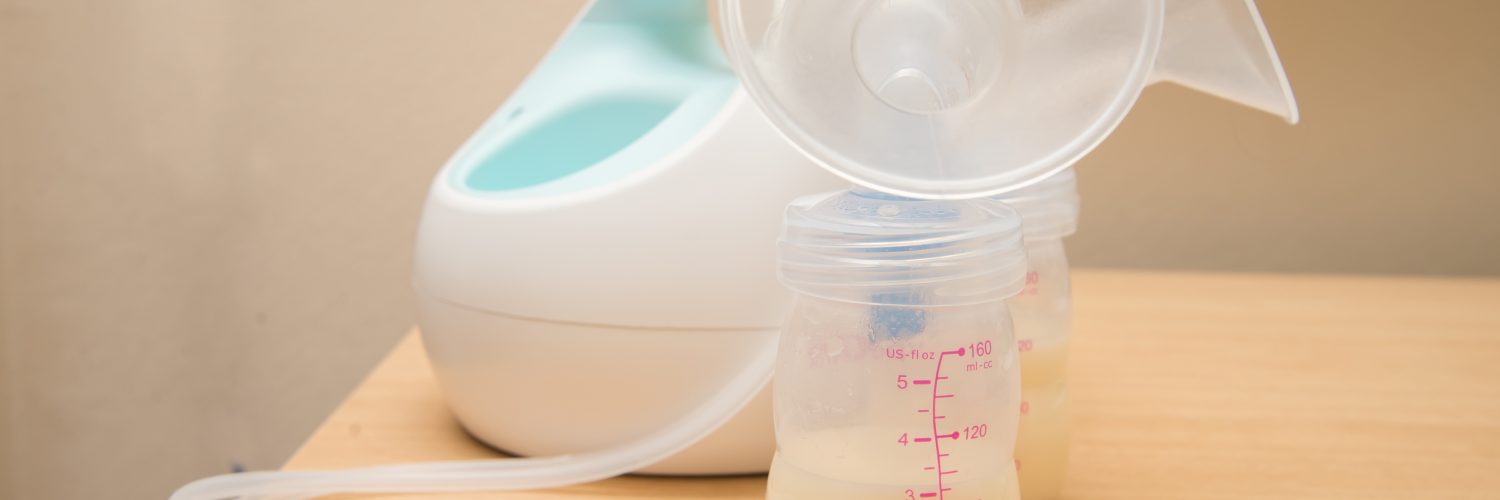Vayera 5781
And she said, “Who is the One Who said to Avraham, ‘Sarah would nurse children’? For I have borne a son in his old age!” (Bereishis 21:7)
In the not-too-distant past, breastmilk was the only available source of nutrition for newborns and infants. If a baby was unable to nurse, its life would be in danger unless a wet nurse could be employed.
Today, although commercially produced infant formula is readily available, the prevailing medical and scientific opinion favors nursing exclusively for at least the first sixth months of its life. Studies have shown that this leads to a reduction in ear and upper respiratory infections, upper respiratory illnesses, and diarrheal illnesses, and lowers the risk of developing asthma, allergies, and Type 1 diabetes.
During the time of Chaza”l, children were regularly nursed for two full years (Kesubos 59b). In fact, Chaza”l permitted a mother to use contraception during this period in order that she shouldn’t become pregnant which would impede her ability to nurse (see Yevamos 12b). There are also other sources that indicate how Chaza”l considered human milk to be crucial to a baby’s development.
The first artificial infant formula was introduced in the late 19th century, and scientists and commercial firms have continued to develop viable alternatives to human milk based on cow milk or soy proteins with various nutritional supplements. Mothers who are unable to nurse, or who wish to supplement their own milk for various reasons, are able to use infant formula. Though human milk is clearly superior, formula is also effective, safe, and continuously improving. In fact, there many different sorts of formula, including hypoallergenic forms for babies who are sensitive or allergic to conventional formula.
In the following essay, we will discuss whether one may express breastmilk on Shabbos, especially in light of the availability of formula.
Nursing obviously requires the extraction of milk from the breast – something that would usually be an act of Mefareik, which is a Tolada of the Melacha of Dash (Shabbos 95b & Rambam, Hilchos Shabbos 8:7)[1]. In spite of this, nursing is obviously permitted on Shabbos. The Gemara in Shabbos 135a states:
A child born after eight months of pregnancy is considered like a rock and it is forbidden to move it. But its mother can bend over it and nurse it because of the danger.
In the Talmudic era, a child born after only eight months of pregnancy (a “Ben Shmona”) was certain to die and its status was similar to that of a dead body (or “a rock”) and was Muktza. Nevertheless, its mother was permitted to nurse it due to the danger to her if she wouldn’t nurse[2]. The fact that the Gemara needed to say that the mother would be endangered in order to justify nursing a Ben Shmona implies that nursing a healthy child needs no justification and is certainly permissible.
However, this is only true of the act of nursing a child directly (i.e. where the child suckles from the breast to extract the milk). If the mother was to pump the milk herself in order to feed it to her baby at a later time (from a bottle), she may well have transgressed an Issur d’Oraisa (see Tosefta, Shabbos 10:4, Shulchan Aruch 328:34 with Nosei Keilim. See also Biur Halacha ibid.).
Nevertheless, if she is in discomfort due to engorgement, she may pump on Shabbos as long as it goes to waste. Doing so is only a “Melacha she’Eina Tzricha leGufa”, as the milk is being extracted to alleviate her discomfort and not to make use of the milk. A Melacha she’Eina Tzricha leGufa is permitted in cases of discomfort (see the Shulchan Aruch 330:8).
In summary: Nursing is permitted, as is pumping in cases of discomfort as long as the milk goes to waste . Pumping in order to feed the child at a later time is an Issur d’Oraisa.
The Shulchan Aruch (O.C. 328:35) rules that, “It is permissible for a woman to express her milk so that her baby will grasp the breast and nurse.” Why is this permitted if it is forbidden for her to pump to feed the baby?
The Pri Megadim (ad. loc.) explains that the milk that she expresses goes to waste as she merely sprays it towards the baby in order to encourage it to nurse. However, the Mishna Berura notes that the Shibolei haLeket (123), which is the source of this ruling, writes explicitly that the baby does swallow the milk that the mother expresses. He suggests that the basis for permitting it might be that the baby will be endangered if it doesn’t nurse (Sha’ar haTziyun ibid. 81[3]). The same suggestion is made by R’ Ovadia Yosef zt”l (Yabia Omer 5, O.C. 32).
It follows that if a baby will be at risk if it isn’t fed its mother’s milk, the mother may pump in order to feed the baby (e.g. via bottle or feeding tube) if there is no other way. This is a common scenario for babies that are born prematurely or are sick and unable to nurse directly, or where the mother’s physical state doesn’t allow her to nurse.
This brings us to our question. Today, where formula is widely available, is it still considered a matter of Pikuach Nefesh to feed a baby human milk such that it would be permitted for a mother to pump on Shabbos? Though the baby would certainly be endangered if it wasn’t fed at all, and human milk is certainly superior, formula would also provide adequate nourishment and its temporary use would not cause ill effects.
In the course of discussing whether we are obligated to prevent young children from transgressing Torah prohibitions, the Gemara in Yevamos (114a) states:
A baby may nurse from an idolatrous woman and from a non-Kosher animal, and we needn’t be concerned that it will be considered to have “nursed from a detestable source”. But we may not feed it Neveilos, Treifos, bugs, or insects. He may nurse from any of them, even on Shabbos…
The Gemara infers from this ruling that a child may consume forbidden products (the milk of a non-Kosher animal), but rejects the proof as we are talking about a case of Sakanas Nefashos, which overrides Torah prohibitions. This explanation is challenged, because if it were a case of Sakana, even an adult would be permitted to drink this milk! The Gemara answers:
An adult requires assessment [in order to determine that he is dangerously ill to the point that we would allow the transgression, but a baby does not]. Surely a child also needs assessment? [In other words, why do we not require expert consultation to determine whether the child will in fact be endangered if it doesn’t nurse?] Said R’ Huna the son of R’ Yehoshua: A baby is endangered with regard to [a lack of] milk.
Presumably. the Gemara permits the child to nurse from a non-Kosher animal is because there is nothing else for it to eat. If so, why may we not also feed it insects or bugs? The Chazon Ish (E.H. 134. 59:3) explains that the Gemara is referring to a case where there is another source of permissible food for the child (hence the Issur to feed it insects or bugs). Nevertheless it may nurse from a non-Kosher animal because “a child is endangered with regard to milk”. In other words, it is essential that it nurse milk – other foods do not suffice.
According to the Chazon Ish, it would be permitted to transgress Issurim in order to provide a baby with milk even where other foods are available. The same argument could be made regarding formula. Since anything other than human milk is not ideal, we should allow the violation of Issurim even if infant formula is available.
However, the Or l’Tzion[4] (2, footnotes to Chap. 36) disagrees with the comparison:
Though the Chazon Ish writes that even if there are other foods available, the child is nevertheless endangered with regard to milk… it would seem that was only during that time where a baby was endangered due to [a lack of] milk, for perhaps other foods would cause it harm, such as stomach poisoning and the like. This is not the case today. It is now very common to give a baby formula and there is no question of endangering it. Therefore, it is difficult to permit it [pumping on Shabbos] unless no alternative is available. It is also permissible to ask a non-Jewish woman to extract the milk…
On the other hand, the Shemiras Shabbos Kehilchasa[5] permits it:
I heard from Rav Shlomo Zalman Auerbach zt”l that even if the baby is not yet accustomed to nursing directly from the mother it is also permissible to pump milk for it into a bottle, since this is its natural form of nourishment and one should not consider an alternative food due to possible danger.
Rav Ovadia Yosef zt”l (Yabia Omer 9:32) concurs with Rav Shlomo Zalman.
Nevertheless, it is reasonable to assume that if a baby is already accustomed to formula and hasn’t experienced any ill effects, there should be no question that it would be forbidden to pump on Shabbos.[6] Nonetheless, Rav Shlomo Zalman Auerbach zt”l, Rav Elyashiv zt”l, and Rav Yisrael Yaakov Fisher zt”l[7] all held that a woman is under no obligation to determine whether her baby will tolerate formula (before Shabbos). If a baby has been nursed exclusively, she needn’t feed it formula in order to avoid pumping on Shabbos. She should nurse as usual, and if she needs to pump and wasn’t able to do so before Shabbos, she may do so.
Some contend (see the Sefer Nishmas Shabbos 5:460) that this ruling should no longer be applicable nowadays when infant formula has vastly improved and should therefore be considered a valid option even for babies that have only previously been exclusively breastfed. Exclusive breastfeeding certainly shouldn’t be considered a matter of Pikuach Nefesh considering that millions of children around the world are formula-fed! Many doctors also attest that there is no risk whatsoever in occasionally feeding formula to a baby that has been exclusively breastfed, and there should be no basis for permitting a woman to pump milk on Shabbos in order to feed her baby[8], unless a doctor has determined that human milk is necessary for specific reasons.
[1] There is a dispute among the Gaonim (see the Rashba, Shabbos ibid.) whether the Chachamim hold that this is an Issur d’Rabbanan or d’Oraisa. The Halacha follows the opinions that it is considered an Issur d’Oraisa.
[2] It is permitted for a mother to nurse a Ben Shmona even if her life isn’t actually in danger but she would be in great discomfort. (See the Shulchan Aruch 330:8, based on Tosfos in Shabbos ibid.)
[3] The Sha’ar haTziyun cites the Tosefes Shabbos who contends that pumping breast milk, unlike milking an animal, is only an Issur d’Rabbanan as it is not the regular way of extracting breast milk (i.e. nursing). However, since many women pump nowadays, this is probably no longer the case. Regardless, the Sha’ar haTziyun dismisses his contention.
[4] R’ Ben Zion Abba Shaul (1924-98), Rosh Yeshiva of Yeshivas Porat Yosef.
[5] Chapter 36, footnote 67
[6] If the mother is concerned that by not pumping her milk production will be diminished and she will not be able to produce enough at a later time when she needs it, she may pump and allow it to go to waste.
[7] Cited in the Sefer Maor haShabbos 14 & 61
[8] The Nishmas Shabbos claims that this was also the position of Rav Chaim Pinchas Scheinberg zt”l.












Add comment